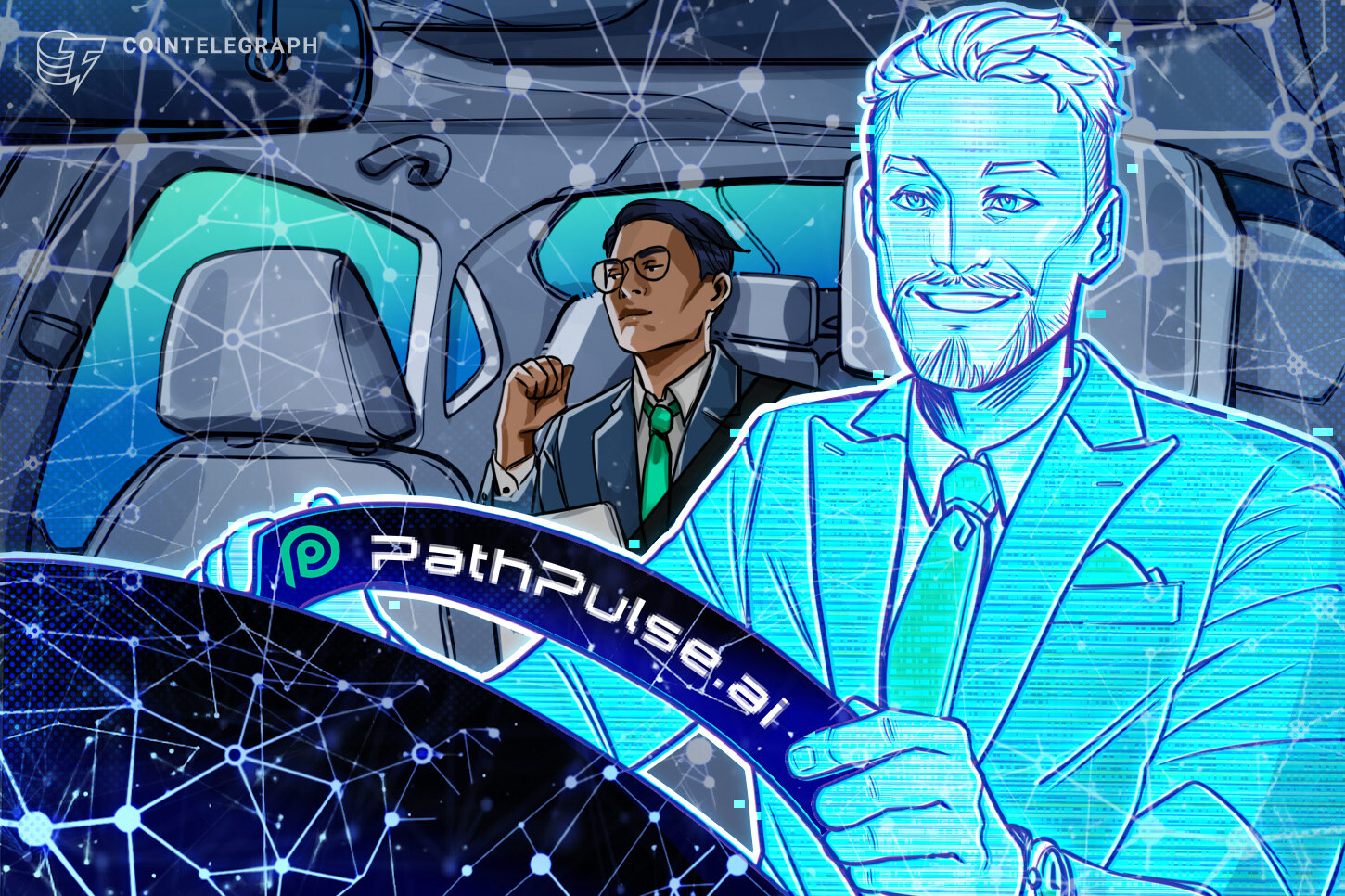Sponsored Content
Traffic predictions that don’t match reality are a near-daily frustration. A drive meant to last 15 minutes can stretch into more than an hour, with no updates from the map app. For Umair Mukadam, co-founder and CEO of PathPulse AI, this annoyance sparked a new approach. Within a year, the idea of a decentralized road intelligence layer evolved into a project already in talks with governments worldwide.
“It started with a personal frustration with pre-existing mapping applications,” Mukadam recalled during a recent Cointelegraph AMA. “They work fine for routine navigation, but when the environment changes drastically, they tend to fail the average user.”
A smarter way to map the world. A smarter way to move through it.
— Cointelegraph (@Cointelegraph) September 9, 2025
Join us on September 10 for an AMA with @Umair_Mu_, and Ritika Khar from @pathpulse_ai and, to hear how they’re building a real-time road intelligence layer with just a smartphone.
🕜 10:30AM EST pic.twitter.com/D7aC3h1ksX
Turning smartphones into sensors
Most navigation apps handle routine routes, but struggle with sudden changes, such as spikes in congestion, road hazards or incidents. PathPulse AI addresses this gap by turning every smartphone into a sensor. Drivers contribute footage, and the system processes it into more than 60 types of road insights, ranging from potholes and closures to speeding, signal violations, emissions breaches and littering.
Unlike many existing apps, PathPulse AI rewards contributors. “Instead of apps just taking your data and not giving anything back, we’ve built a model where around 70% of the validated value goes back to the driver,” Mukadam said. “That’s why people are more likely to pivot to our system.”
Rideshare drivers, for example, could add to their monthly income by contributing data during long driving hours. “We expect Uber and Lyft drivers to earn between 20% and 30% of their monthly income directly through PathPulse AI,” Mukadam noted.
Governments are tuned in
In less than a year, PathPulse AI has advanced conversations with multiple administrations worldwide. The economic case is clear: If a country wants 10,000 high-spec cameras on the roads, the cost goes upward of $100 million annually. Even then, it yields only a handful of insights.
On the other hand, PathPulse AI offers richer data, over 60 categories, without upfront infrastructure or maintenance costs. Governments pay only for validated data delivered through PathPulse AI’s API and data layer. “We’re already finalizing MOUs with respected administrations globally,” Mukadam said. “The surprising part is how eager governments are for this model, because it saves them enormous costs while expanding visibility.”
Chief public relations officer Ritika Khar underlined the role of public trust: “Our objective is to make each city more livable. Citizens and governments both want accountability. With PathPulse AI, people are rewarded for contributing data that makes their own environment safer.”
She added that institutions need sovereignty over infrastructure information: “We know governments won’t be comfortable giving sensitive road data to Big Tech companies. That’s why our approach is designed for transparency and sovereignty.”
Safeguards and privacy
To prevent manipulation, PathPulse AI’s mobile app ‘Scout’ requires minimum speeds for activation, blacklists devices flagged for fraudulent use and uses decentralized storage for collected data. The project also runs white hat hacking competitions to stress-test the system, with security patches deployed rapidly.
“There’s always going to be someone who tries to game the system,” Mukadam acknowledged. “But we’ve already patched dozens of attempts, and we’re confident that the safeguards will only get stronger over time.”
Privacy remains central. The platform does not require personal identifiers or direct user information, focusing instead on environmental data. Public footage is only processed under approved simulations, addressing regulatory and social concerns around surveillance.
“We don’t collect or store personal identifiers,” Mukadam emphasized. “All we care about is whether you’re on the road, and whether the data can improve infrastructure.”
The road ahead
The launch of their mobile app ‘Scout’ is expected to drive adoption among everyday drivers, students and Web3 users. For governments and enterprises, PathPulse AI positions itself as an infrastructure layer, offering validated data through APIs. “Our goal is to provide solutions,” Mukadam said. “If we know where the black spots are, we can help governments design the cheapest, most practical fixes for those cities.”
The AMA session concluded with a look at the next 2 years. AI-enhanced mapping is already being tested by automakers like Tesla and BYD, but PathPulse AI aims to expand its footprint with a dual focus: consumer adoption and institutional integration.
The target is clear — a decentralized road intelligence network that makes cities safer and mobility more predictable.
Disclaimer. Cointelegraph does not endorse any content or product on this page. While we aim at providing you with all important information that we could obtain in this sponsored article, readers should do their own research before taking any actions related to the company and carry full responsibility for their decisions, nor can this article be considered as investment advice.
Disclaimer.This content is part of a paid partnership. The text below is a sponsored article that is not part of Cointelegraph.com editorial content. The material is written by our advertorial team and has undergone editorial review to ensure clarity and relevance, it may not reflect the views and opinions of Cointelegraph.com. Readers are encouraged to conduct their own research before taking any actions related to the company. Disclosure.


